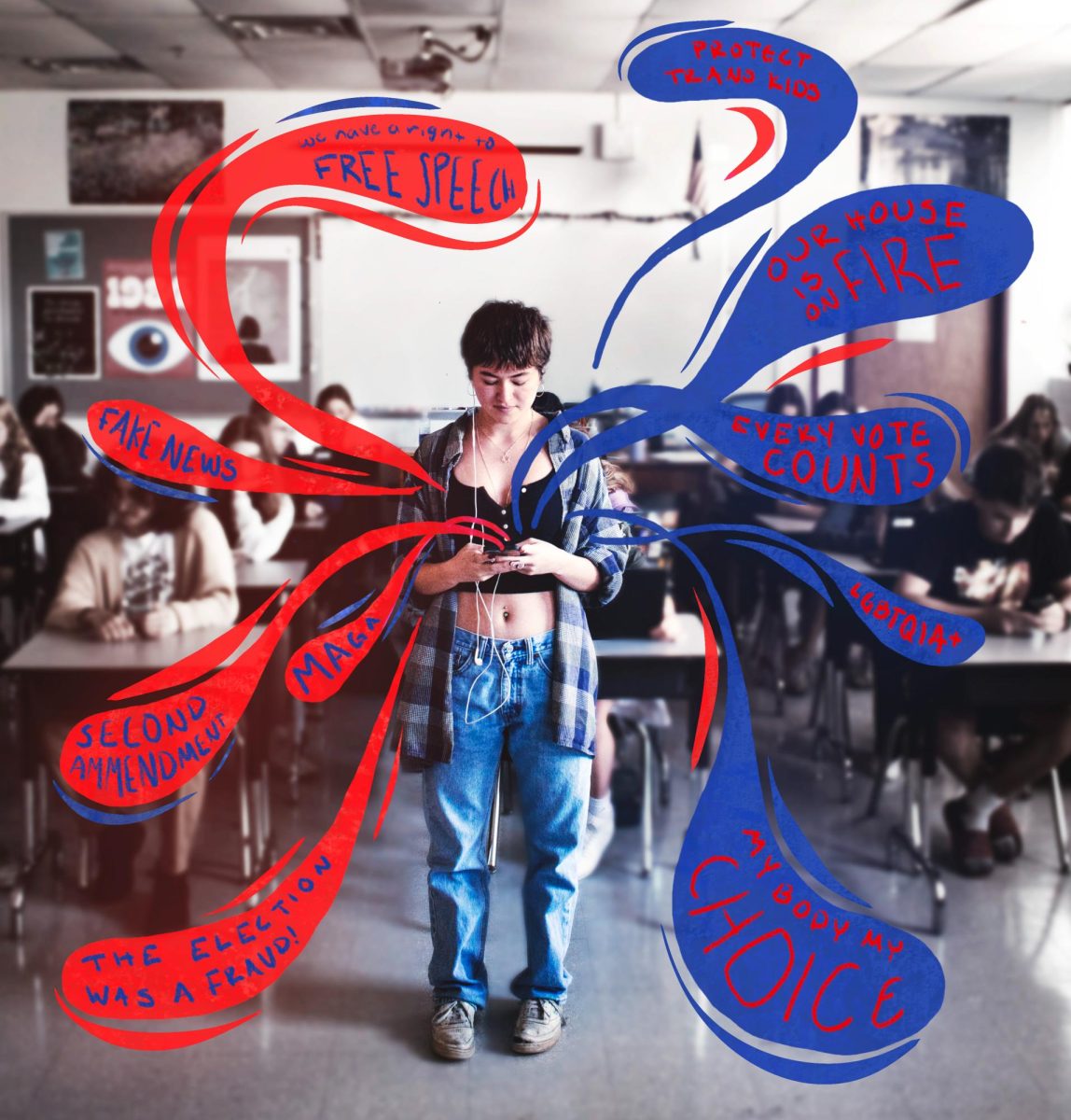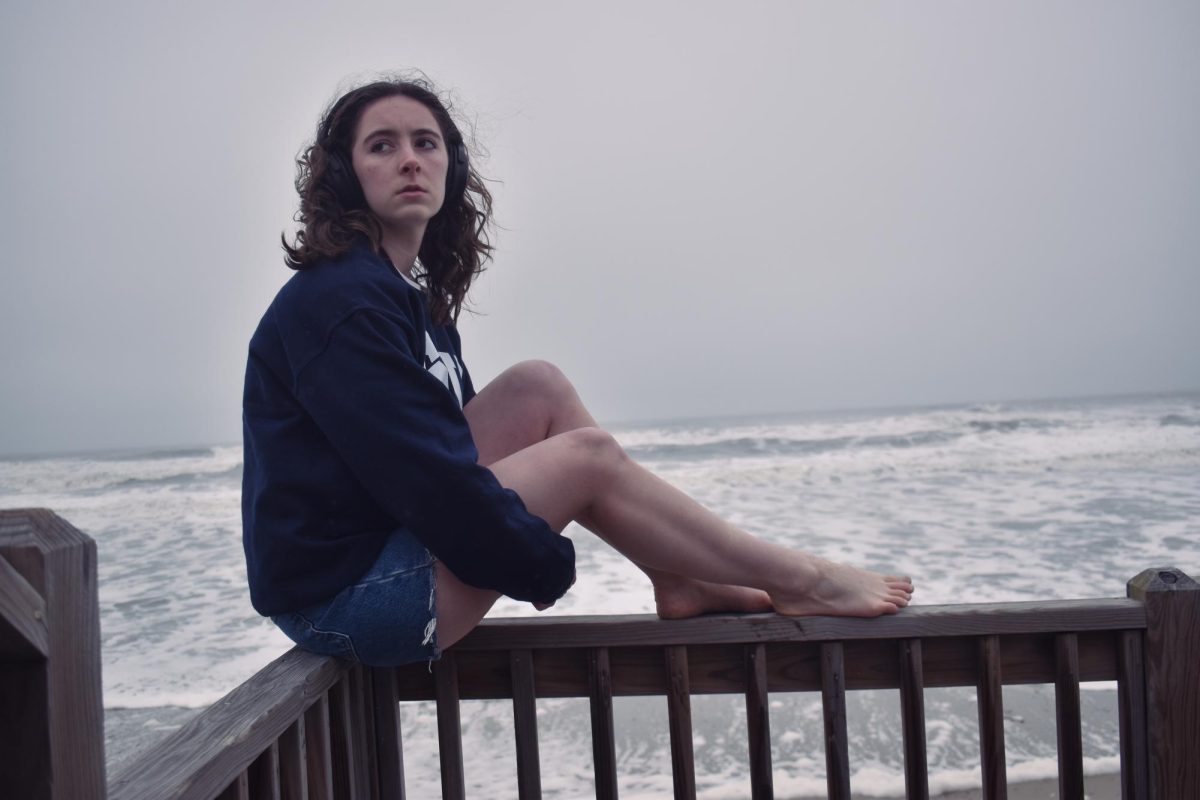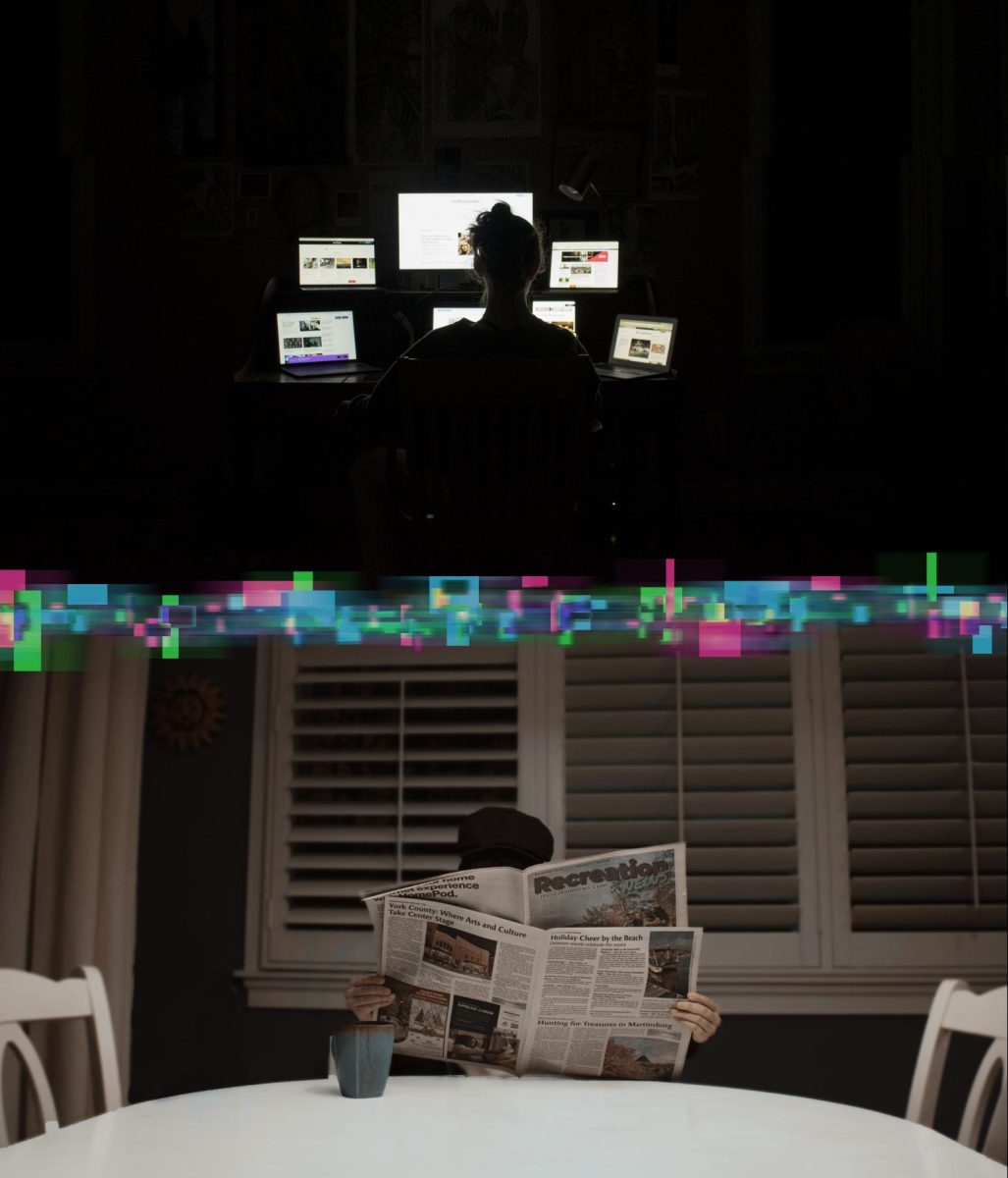As Gen-Z reaches voting age, the United States has seen the political demographics and engagement of our generation visibly shifting the tide in modern politics. With record high voter turnouts and increased political activism, the impact of Gen-Z on politics is substantial, and will affect the politics of generations to come.
The increase has been evident in both recent presidential and midterm elections. A study from the Center for Information and Research on Civic Learning and Engagement (CIRCLE) at Tufts University saw nearly an 11% increase in voters aged 18-29 in 2020, and another 4% increase in the 2022 midterms. At Madison, 57.7% of students who will be of age reported that they plan to vote in the upcoming 2024 presidential election. When students are forming their own political views, there are a number of factors that play into their development.
By looking at the political engagement within the various high schools in Fairfax County Public Schools (FCPS), it can be concluded that regional differences affect not only a student’s political bias, but their level of political involvement within their community. As shown in the FCPS high school zoning map to the side, schools in the northeast area of FCPS tend to only have a Young Democrats club, while schools to the west tend to have both a Young Democrats and a Young Republicans club, according to the websites of each high school. High schools in the more southern regions are more likely to only have a Young Republicans, and those in the central region tend not to have any politically involved clubs.
Classes such as U.S Government and Politics emphasize the significance of young people staying engaged with current events and politics, regardless of whether they are voting age. Many government teachers at Madison start class with Cable News Network’s (CNN) CNN 10 News program, designed for teachers to play in class to keep students informed on current events. In a recent segment on Oct. 20, CNN correspondent Coy Wire discussed everything from the mayhem of the House Speaker election to the tumultuous Israel-Palestine conflict and its effect on Israeli and Palestinian citizens.
“[Political engagement] helps you become a better citizen,” Theresa Schneider, an Advanced Placement (AP) U.S. Government and Politics teacher at Madison, said. “You’re adults; you’re going out into the world, knowing what’s happening is going to allow you to be an active participant and play a role in the world. The other thing–I know at this point your peer groups are hopefully starting to talk about issues, this helps with your critical thinking, I feel like it helps for my class—for AP Gov—the issues we talk about and the curriculum, there’s immediate connections to what’s going on in the real world, and so it obviously enhances your understanding of what we are talking about in class.”
According to a survey of 224 students conducted by The Hawk Talk, just 13.8% of Madison students would describe themselves as very politically engaged. Some students feel pressure from the two-party system and the polarization of each side, and as a result do not engage with either.
“I don’t associate with any political party because both Democrats and Republicans have become extremely polarized,” Isa Murphy (’24) said. “I consider myself independent because I’m more moderate in my beliefs. I do feel pressure from social media and friends to have a strong Left or Right opinion. These days, if you’re not Left, you’re Right, and if you’re not Right, you’re Left. There’s no middle group anymore.”
At Madison, many students reflect this sentiment, with 46.2% reporting that they do not associate with a particular political party. However, Madison leans Democratic, with 33% of students associating with the Democratic Party, and a meager 5.8% with the Republican Party. At present, Madison only has a Young Democrats club. While it used to have a Young Republicans club, the group disbanded in recent years.
The Pew Research Center conducted a series of surveys in 2018 concerning different generations’ views on subjects such as climate change, diversity and the role of government. The results of these surveys reflect Gen-Z’s more liberal tendencies; 70% of Gen-Z believes that the government should be doing more to solve problems, while only 30% believe the government is over involved in matters better left to businesses and individuals. These percentages significantly contrast those of Baby Boomers, born from 1946–1963, who split 39% and 60% on the same survey, respectively.
This shift Left could be attributed to the fact that younger generations are consuming politics and current events through increasingly diverse mediums. According to a survey of 224 students conducted by The Hawk Talk, 68.8% of Madison students consume their politics through social media platforms such as Instagram or Tiktok, 43.6% through watching TV, and just 17% through print newspapers and/or magazines.
Younger generations, uniquely versed in the online world through various social media platforms, are able to instantly communicate and spread information from just about anywhere, at any time. Due to the sheer number of people connected through social media, youth activism and awareness surrounding political issues has greatly increased. This year, Forbes Magazine reported that approximately 4.9 billion people worldwide use social media. It generates opportunities for local or grassroots movements to evolve, take shape and reach more people. As a result, the users–the majority of which are Gen-Z–can utilize this interconnectability to stay politically involved and educated while supporting important causes.
At Madison, political activism clubs such as the Amnesty International club, the Climate Leaders club and Project Rose use their social media to not only promote their clubs, but increase awareness for the causes they care about.
“Activism is critical at the student level because the issues that the world is facing has a direct impact on their lives and their futures,” Matthew Hegedus (’24), President of Amnesty International Club at Madison said. “Students need to have their opinions surrounding these issues shared so that they can influence discussions and policies in ways that will benefit them, rather than just letting things go on around them without their input.”
While social media is an important factor in the rise of youth activism and the spread of political knowledge, there is also a dangerous increase in misinformation. Social media provides “rewards-based learning systems,” which encourage users to maintain activity on platforms. Content producers are more likely to mislead consumers if they have eye-catching posts because of the important role that visuals play in user interaction. Users are often unable to discern these inaccurate and misleading posts from real news. Misinformation on social media can affect users due to several factors, such as age, inherent biases and users’ lack of critical thinking skills, all of which can impact whether or not users can differentiate between what is reality and what is fake. Additionally, a strong affiliation to one specific political party can alter a reader’s judgment. These biases play an immense role in how fake media is perceived.
“I can’t think of a single form of media that isn’t designed to influence people who are listening to it or watching it or reading it,” Madison English teacher Marc Lebendig said. “If you don’t have the literacy skills, you probably don’t recognize that. And then your political engagement may be non-existent because there are plenty of people who would like to see young people less politically engaged than they are. That works in plenty of people’s favor. Or you will be politically engaged in a way that you may not have total control over, without realizing it.”
In 1933, former president Franklin Delano Roosevelt gave his first Fireside Chat, pioneering politicians’ use of technology to connect with America. The flood of social media has created the same opportunity as this introduction of the radio. With the rise of the internet, politicians have turned their campaigns into platforms. During former president Barack Obama’s 2008 presidential campaign, he utilized Facebook, among other platforms, to enhance his bid for the presidency. 15 years later, all politicians have social media platforms, used for everything from vying for votes to poking fun at their opponents. North Carolina Representative, Jeff Jackson (D-NC) is well known for his TikToks explaining Congressional proceedings to the average American, much in Roosevelt’s style, while the House of Representatives Republican Conference Instagram regularly posts clips from House proceedings. Regardless of the content produced, all these platforms aim to educate and persuade Americans, particularly younger generations, and media literacy is necessary to recognize the influence politicians hold when wielding social media.
According to a survey conducted by the Tuft’s CIRCLE, students who have been taught media literacy in schools are twice as likely to create and post political content on social media. As more and more people consume their news through social media, media literacy skills–including the knowledge that a variety of sources are necessary to make an informed decision–are vital to youth civic engagement.
I think a good way of thinking about literacy is recognizing connections,” Lebendig said. “If you have fewer things that you can connect, you are going to be less literate, I suspect. And yes, I think that is a problem for meaningful political engagement for anybody of any age.”
An understanding of such topics can only contribute to Gen-Z and their successors’ political engagement. Gen-Z’s use of social media has had a profound influence on their political views and activism, raising several questions about the future of politics and what role Gen-Z will play in it. On one hand, the rise of social media has given youth a platform to voice their opinions and impact issues at the local, national, even global level. On the other hand, its plethora of opinions can be overwhelming, filling our generation with static and overshadowing the voices that need to be heard. It could lead to the decline of meaningful and productive discussions about issues that matter. Yet, undeniably, in utilizing social media, Gen-Z has had, and will continue to have, the power to push the limits of political engagement, reaching farther in their impact than ever before.
“Like each generation before us, Gen-Z will have the responsibility to run the country and create positive change,” Gretchen Schmitt (’26) said. “As our generation grows older, we are beginning to recognize that responsibility and what we have to do to fulfill it.”





